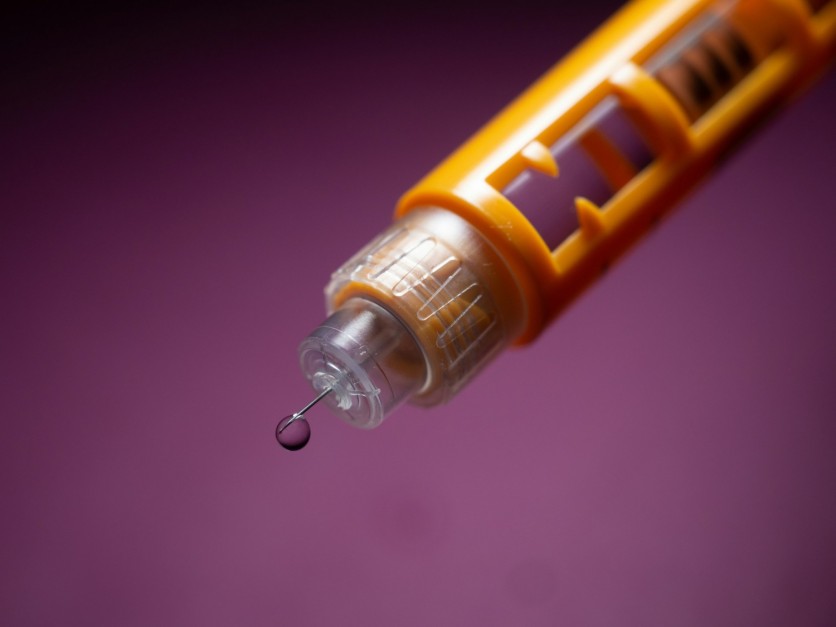In the United States, where around 8 million people rely on insulin for diabetes management, soaring prices have created barriers to accessibility.
As Congress takes initial steps to cap monthly out-of-pocket costs, one Houston-based biotech startup, rBIO, is pioneering a groundbreaking solution. Through innovative biosimilar production using custom-made bacteria, the firm aims to make insulin more affordable, potentially making it more accessible to many.
The Challenge in Making Insulin Cheaper

The escalating cost of insulin has posed a significant challenge for users, leading to skipped doses and compromised adherence to prescribed treatments.
Despite recent Congressional measures and list price reductions by insulin-makers, not all patients benefit from these initiatives. Because of this, the need for an alternative approach to insulin production and pricing becomes imperative, per Wired.
Related Article : Excessive Insulin Can Be Deadly, New Study Warns
Inventing a Novel Biosimilar Production Process
A cheaper insulin means that more people can buy it. rBIO stands at the forefront of biosimilar insulin development, introducing a unique process utilizing custom-designed bacteria.
CEO Cameron Owen highlights the creation of novel bacterial strains capable of doubling insulin yield, setting the stage for a more efficient and cost-effective production method. The biosimilar insulin undergoes rigorous lab tests, ensuring structural and functional parity with established brand-name counterparts.
Advancing to Clinical Trials for Validation
Having completed successful lab tests, rBIO is poised to embark on a clinical trial later this year. The trial aims to assess the real-world efficacy of rBIO's biosimilar insulin, comparing its performance with existing market options. The outcome will play a pivotal role in determining the viability and acceptance of rBIO's insulin as a credible alternative.
Combating High Insulin Prices as a Priority
Owen asserts that the exorbitant prices of insulin amount to nothing short of price gouging. With an average list price of $98 for a vial in the U.S., compared to $12 in Canada and $7.52 in the U.K., the urgency to combat this issue is tackled, a RAND study says.
The Houston startup aims to achieve a lone feat: the substantial reduction in insulin costs through its innovative approach.
The Evolution of Insulin Production
The history of insulin production has evolved significantly since its discovery in 1921. Initially sourced from animals like cattle and pigs, synthetic human insulin became feasible in 1978.
Recent advancements, including the expiration of key patents and FDA support for biosimilars, have paved the way for transformative changes in insulin production.
Supercharged Bacteria for Increased Efficiency
rBIO's collaboration with Professor Sergej Djuranovic has resulted in the development of supercharged E. coli-like bacteria. These bacteria exhibit an unprecedented ability to produce higher quantities of insulin compared to conventional strains. The cost-effectiveness of this process aligns with rBIO's commitment to driving down insulin costs.
"This sequence of certain amino acids will boost up protein production, and it's purely because the protein is being made more efficiently," Djuranovic says.
While biosimilar insulin is gaining traction, market penetration remains a challenge. The recent approval of biosimilar products and initiatives by nonprofit entities, like Civica, hints at a more positive look toward more affordable insulin options.
rBIO's goal of reducing insulin costs by 30 percent echoes a broader industry trend towards enhanced competition and patient-centric pricing strategies.
As rBIO progresses through clinical trials and regulatory milestones, the focus on ensuring both efficacy and affordability becomes the utmost priority. The ultimate success of biosimilar insulin hinges on its acceptance by pharmacy benefit managers and its ability to reach end-users at significantly reduced costs.
What rBIO did was a game-changer for the masses. It's indeed a life-saving game plan that is meant to impact the lives of patients who badly depend on insulin.

ⓒ 2026 TECHTIMES.com All rights reserved. Do not reproduce without permission.




